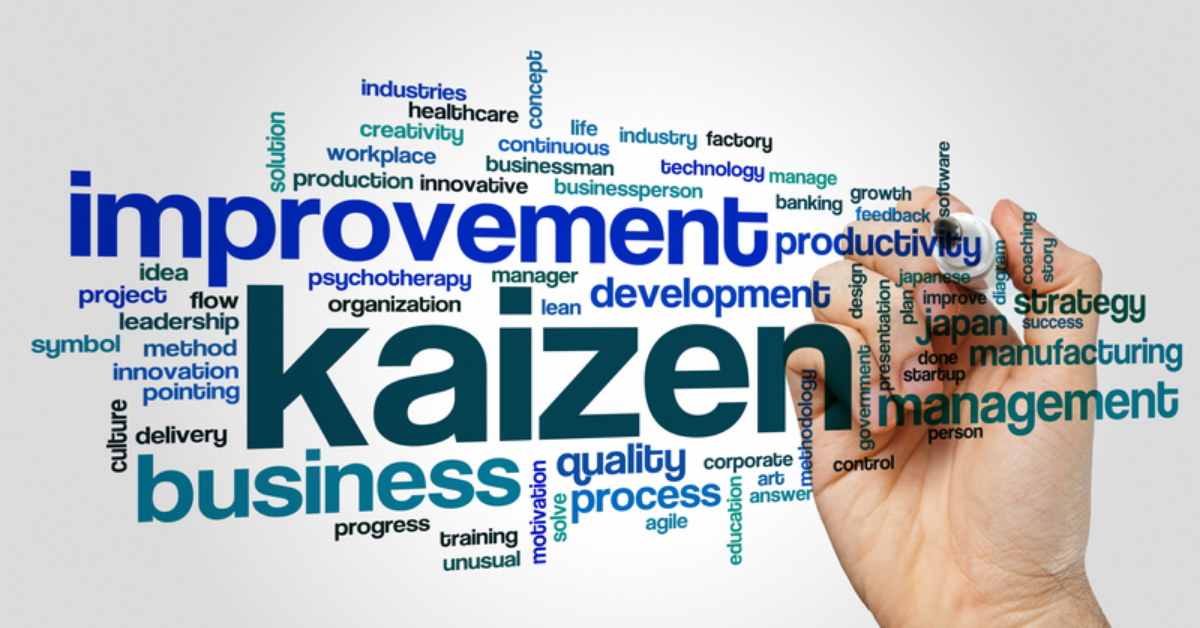Kaizen Training & Certification (Live Online)

About Course
The Kaizen Training & Certification Course offered by KAE Education is a comprehensive program designed to equip participants with the essential skills and knowledge required for effective process improvement using Kaizen methodologies. Over 8 hours of instruction, participants will delve into the latest trends and best practices in Kaizen, learning how to apply the methodologies to improve process efficiency, reduce waste, and enhance customer satisfaction.

Course Overview
KAE Education’s Kaizen Training and Certification Course offers a comprehensive understanding of the Kaizen philosophy and its practical applications. The curriculum includes:
- Introduction to Kaizen: Understanding the history, principles, and core concepts of Kaizen, including its Japanese origins and global adoption.
- Kaizen Tools and Techniques: Learning about various Kaizen tools such as 5S, Value Stream Mapping, and Root Cause Analysis, which are essential for identifying and eliminating waste.
- Continuous Improvement Processes: Developing strategies for implementing continuous improvement processes within an organization.
- Change Management: Exploring methods to manage change effectively, ensuring smooth transitions and minimizing resistance.
- Team Collaboration: Fostering a collaborative work environment where team members actively participate in improvement initiatives.
- Problem-Solving Skills: Enhancing problem-solving abilities to identify issues, analyze root causes, and develop effective solutions.
- Performance Metrics: Understanding how to measure performance and track progress using Key Performance Indicators (KPIs) and other metrics.
- Case Studies and Real-World Applications: Analyzing real-world case studies to understand successful Kaizen implementations and their impact on organizational performance.
- Capstone Project: A practical project that allows students to apply Kaizen principles to a real or simulated business scenario, demonstrating their ability to drive continuous improvement.
Benefits of Enrolling in KAE Education’s Kaizen Training Course
- Expert Instruction: Learn from experienced professionals who bring practical insights and expertise in Kaizen and continuous improvement.
- Hands-on Learning: Engage in interactive exercises, simulations, and a capstone project to apply Kaizen principles in real-world contexts.
- Comprehensive Curriculum: A well-rounded syllabus that covers all essential aspects of Kaizen and continuous improvement.
- Career Support: Receive guidance on how to leverage Kaizen skills in your career, including resume building, interview preparation, and job placement assistance.
Future Prospects After Completing the Kaizen Training
Completing the Kaizen Training and Certification Course from KAE Education opens up numerous career opportunities across various industries. Here are some potential career paths and designations that can be achieved:
- Continuous Improvement Manager: Leading initiatives to improve processes, reduce waste, and enhance efficiency within an organization.
- Lean Manufacturing Specialist: Implementing lean principles and Kaizen techniques in manufacturing processes to optimize production and reduce costs.
- Quality Assurance Manager: Overseeing quality control processes and ensuring that products and services meet high standards of quality and efficiency.
- Operations Manager: Managing daily operations with a focus on continuous improvement to enhance productivity and operational efficiency.
- Process Improvement Consultant: Advising organizations on how to implement Kaizen principles and other continuous improvement methodologies to achieve business goals.
- Project Manager: Utilizing Kaizen principles to manage projects more effectively, ensuring timely delivery and optimal resource utilization.
- Business Analyst: Analyzing business processes and recommending improvements based on Kaizen principles to enhance overall performance.
- Supply Chain Manager: Applying Kaizen techniques to streamline supply chain operations, reduce lead times, and improve logistics efficiency.
Industry Applications
- Manufacturing: Enhancing production processes, reducing waste, and improving product quality.
- Healthcare: Streamlining operations, improving patient care, and reducing costs in healthcare facilities.
- Retail: Optimizing inventory management, enhancing customer service, and improving overall store operations.
- Finance: Implementing Kaizen to enhance financial processes, reduce errors, and improve service delivery.
- Technology: Utilizing continuous improvement to streamline software development, IT operations, and support services.
Conclusion
KAE Education’s Kaizen Training and Certification Course is an invaluable resource for professionals looking to drive continuous improvement within their organizations. The comprehensive curriculum, expert instruction, and hands-on projects ensure that students are well-prepared to implement Kaizen principles effectively. By mastering the art of continuous improvement, graduates can look forward to a promising career, helping businesses achieve operational excellence and maintain a competitive edge in the market.
Enrolling in this course is a strategic step towards becoming a change agent, capable of leading initiatives that drive efficiency, productivity, and long-term success.
To enroll in Kaizen Training: Click here
To know more about Kaizen Technique: Click here
Course Content
Module 1: Introduction to Kaizen
-
Overview of Kaizen
-
Importance of process improvement
-
Setting process improvement objectives
